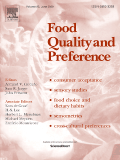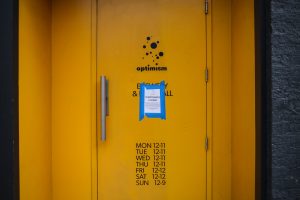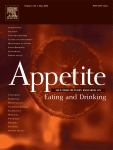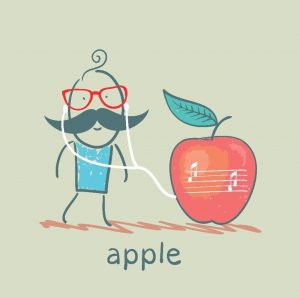
Andreia (ESR8) have written a blog-post on her experiences during the Covid-19 situation: I feel lucky and in a privileged position during these difficult corona times. I haven’t fallen sick so far, neither has anybody close to me. I have the best job one can possibly have now. It’s perfectly possible to work from home and I run no risk of becoming unemployed due to the…

Martina Galler (ESR1) recently published her first paper “How children approach a CATA test influences the outcome. Insights on ticking styles from two case studies with 6–9-year old children“ within EDULIA in “Food Quality and Preference”. A summary of the paper is given below, for the full paper please visit our publication page. DOI: https://doi.org/10.1016/j.foodqual.2020.104009 …

All the ten ESRs in Edulia are doing their work away from their home countries, and some of them were on secondment in a third country when the virus hit. We have asked them how the Covid-19 situation has affected them. Here are their experiences and thoughts. More online data collection First, we asked if…

Not every PhD is the same, that’s for sure. Factors like your university rules and regulations, your topic of study, your workplace and colleagues play a key role on how you will experience the PhD life. Nevertheless, I would like to share my own specific experience, that is mostly a very good one. I have just finished my 2nd year PhD, entering…

Andreia Ferreira Moura (ESR8) recently published her first Edulia paper in the journal Appetite. The paper is entitled “A downturn or a window of opportunity? How Danish and French parents perceive changes in healthy eating in the transition to parenthood”. A summary of the paper is given below, for the full paper please visit our…

Julia Sick (ESR3) recently published her first paper within EDULIA in “Food Quality and Preference”. The paper is entitled “Children’s selection of emojis to express food-elicited emotions in varied eating contexts”. A summary of the paper is given below, for the full paper please visit our publication page. How can we measure how children feel…

ESR8-Andreia has created a series of short podcast episodes to share insights on how to deal with an obesogenic environment while considering a more holistic understanding of eating behaviours. Andreia talks about how her own nutrition approach changed along the years. From being a clinical nutritionist working in Sao Paulo (Brazil), to being an Early…

Wageningen University and Research in The Netherlands has a 2-year ESR position (junior researcher, no PhD position) available within the ITN Marie Curie Project. The rise in childhood obesity is a worrying trend, also in relation to its concomitant increase in rates of associated non-communicable diseases. There is a need for understanding the role sensory…

After 35 hours of interviews and 500 pages of discourses analyzed, ESR8-Andreia and her supervisor Jessica Aschemann-Witzel, published their first article with Edulia results: A downturn or a window of opportunity? How Danish and French parents perceive changes in healthy eating in the transition to parenthood. The results of the study have been published in…

Eating together with friends is not always good for children and adolescents. Eating together with siblings is still an obscure field. Tija Rageliene (ESR9) recently published her first paper in “Appetite” (open access). A summary of the paper is given below Childhood obesity and overweight are rapidly increasing worldwide becoming one of the major public…








